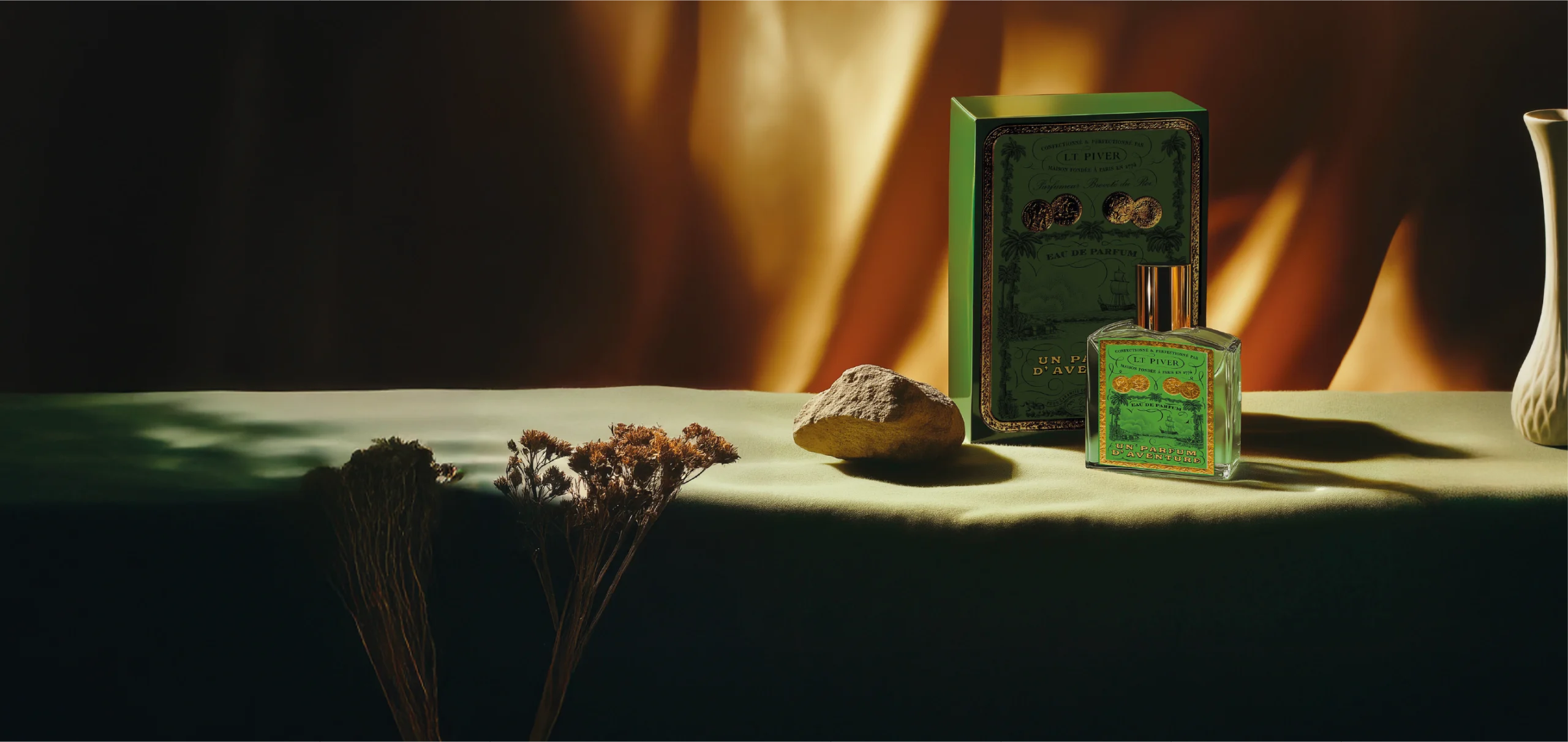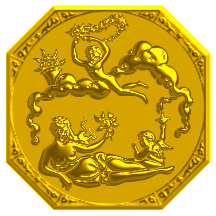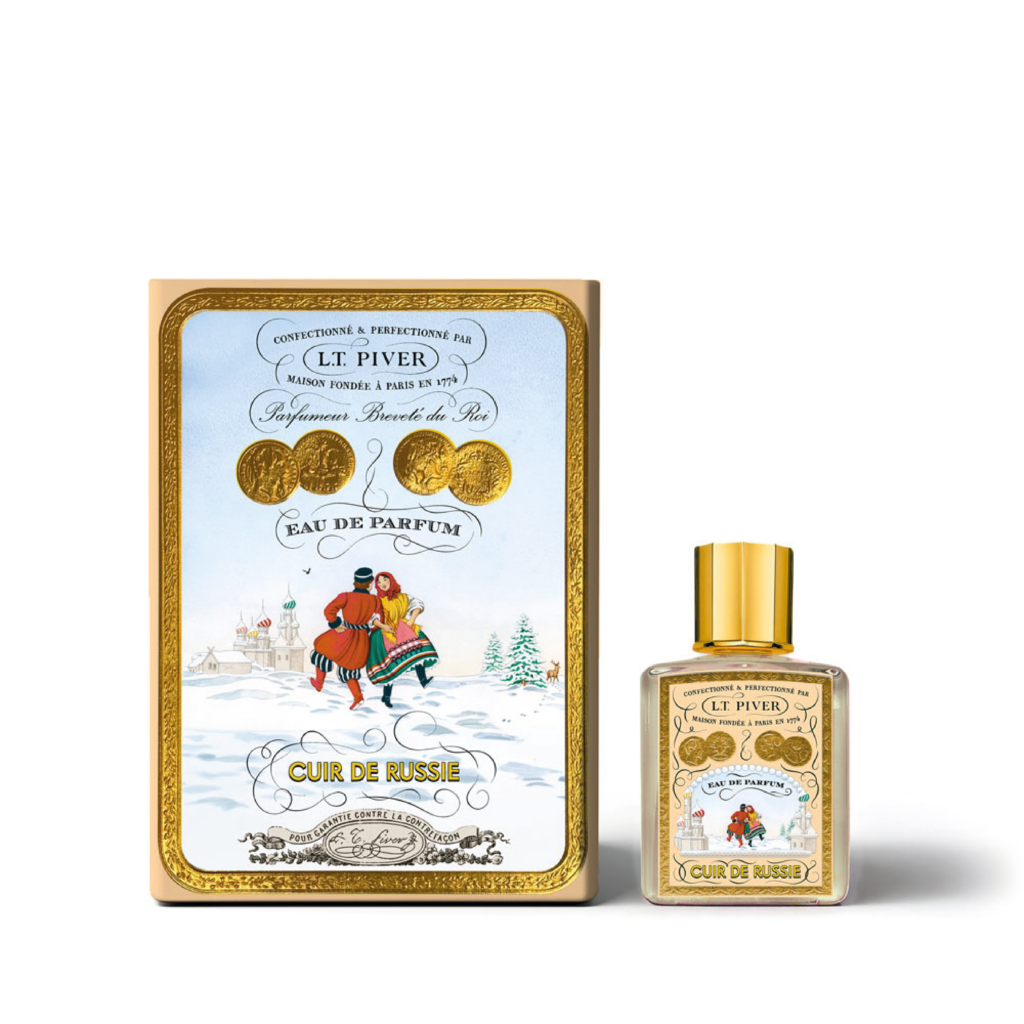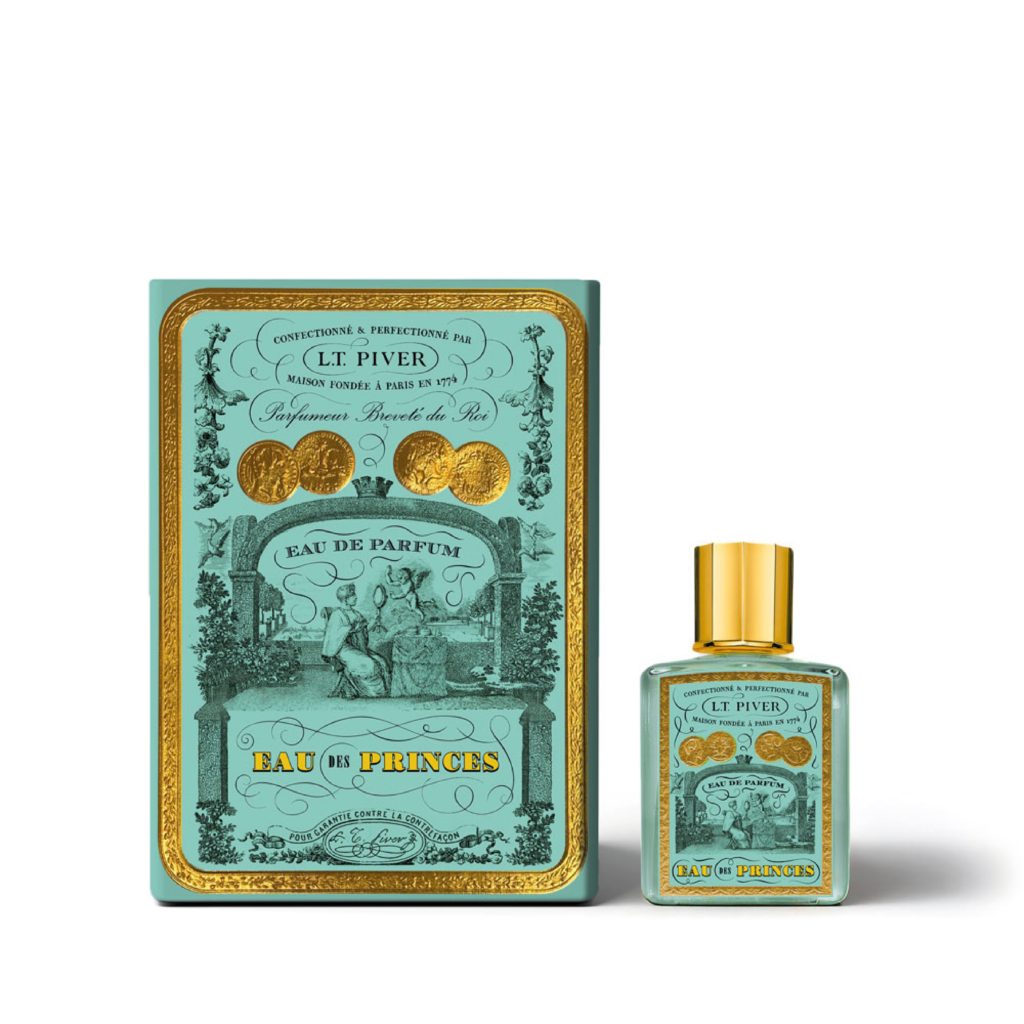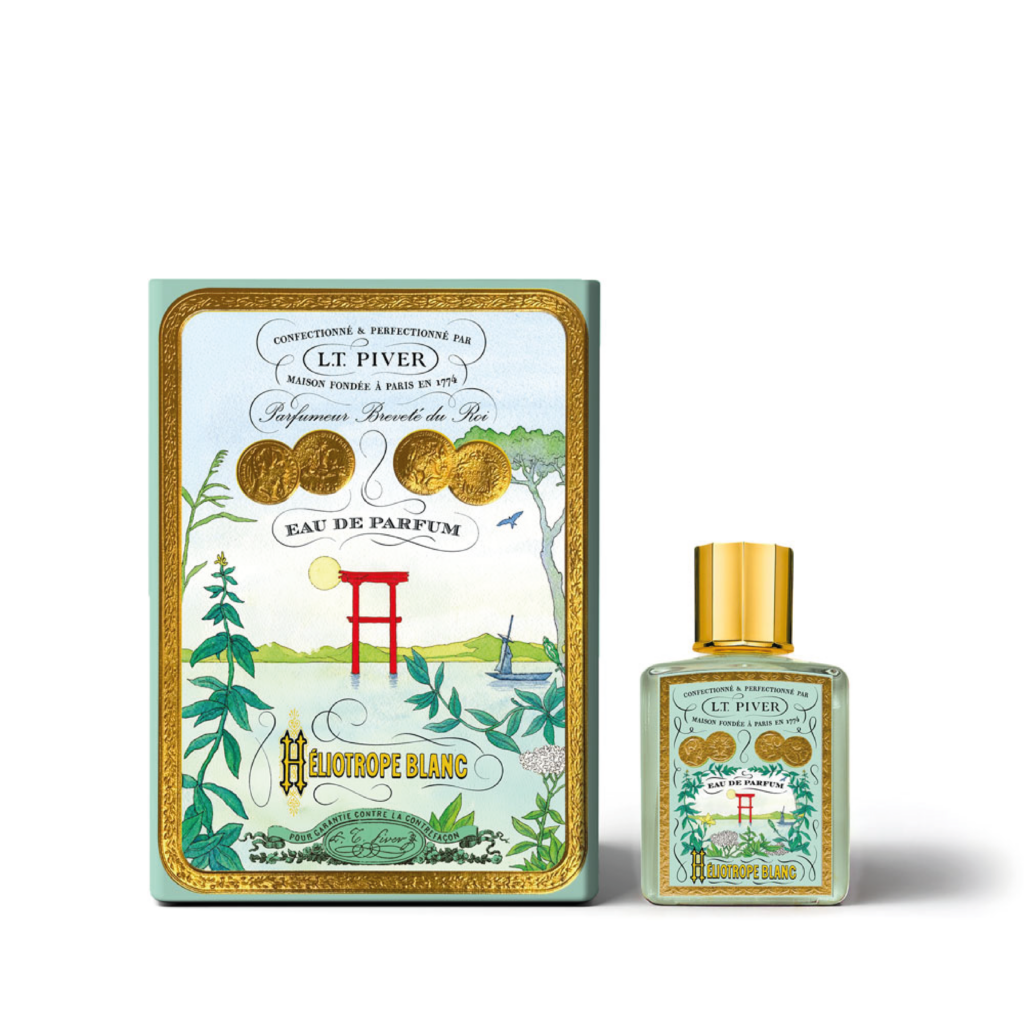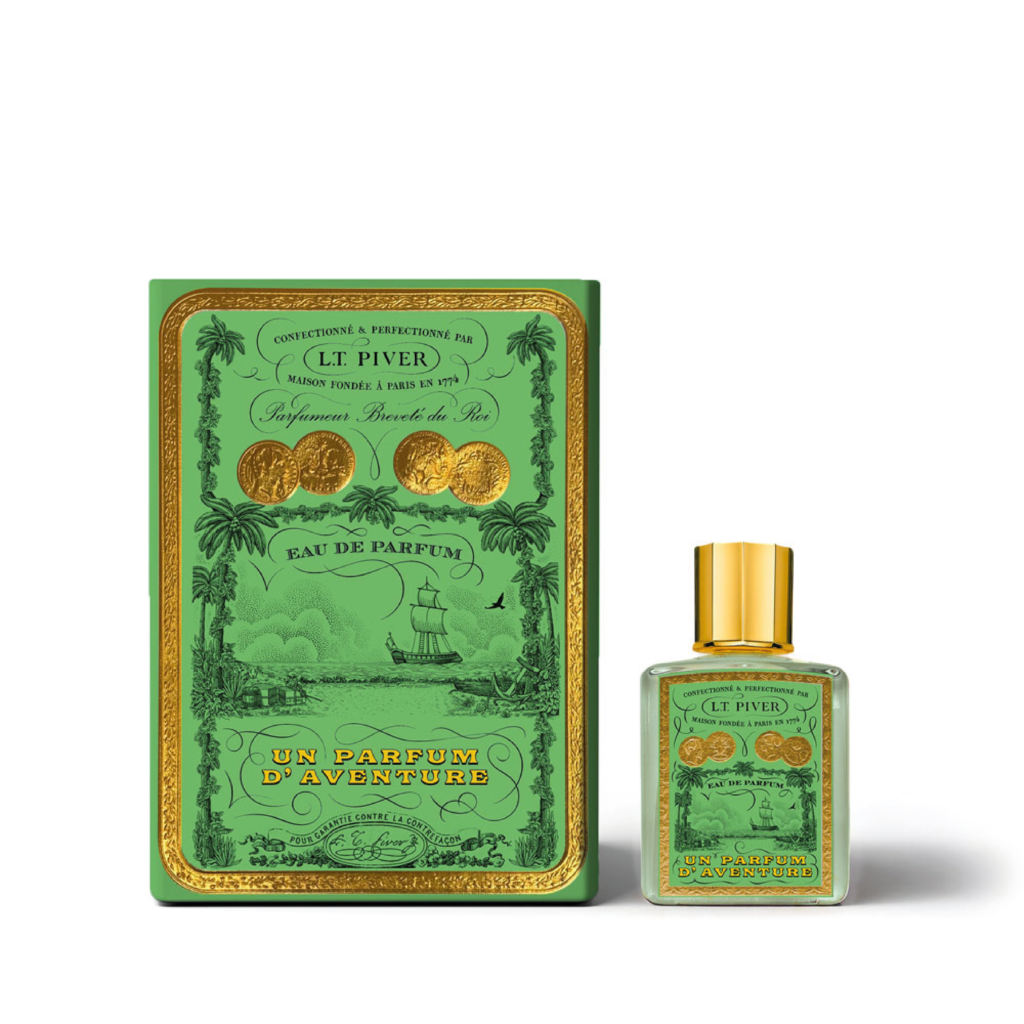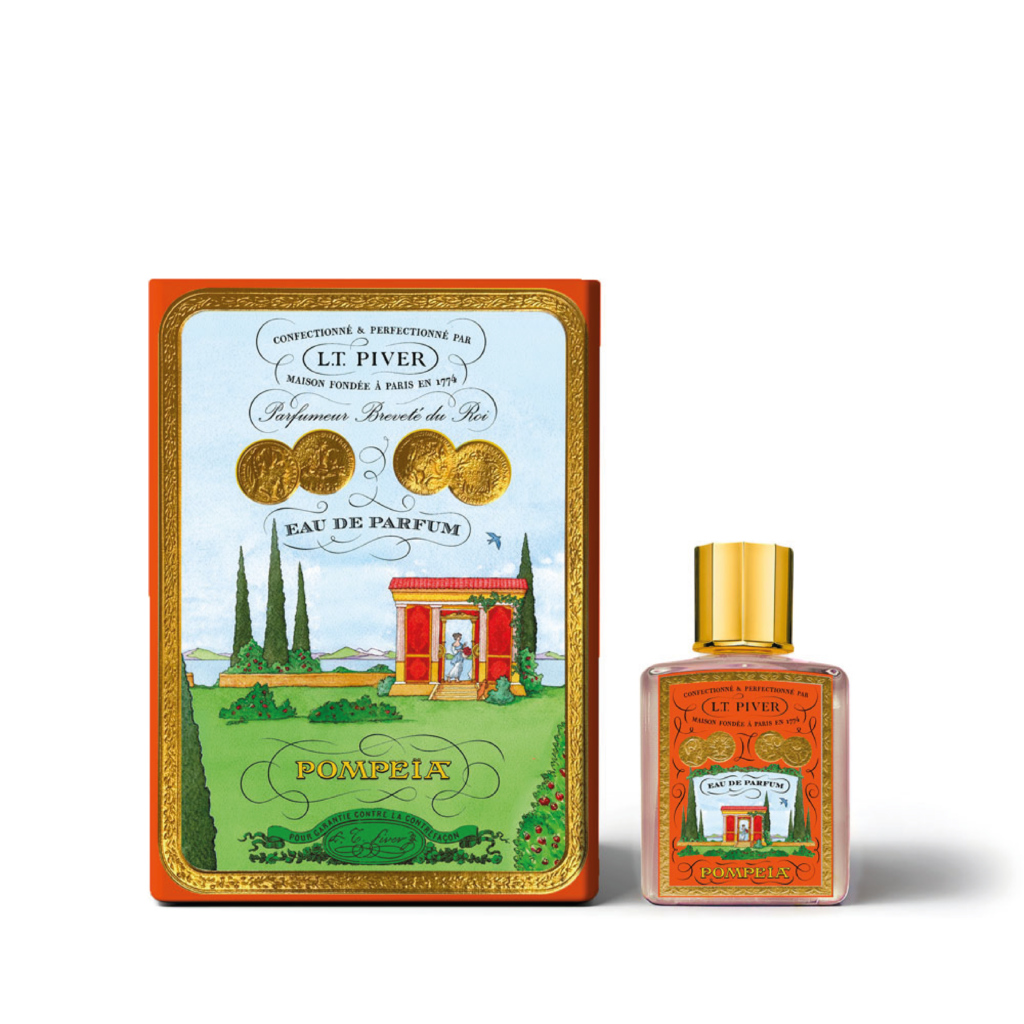Perfume of fame
Over the centuries, Maison L.T. Piver has been far more than a mere perfumery. As an official supplier to royal courts across the world, it had the privilege of crafting fragrances, cosmetics, and soaps designed exclusively for the most illustrious figures of the 19th and 20th centuries—artists, monarchs, and nobility. Today, these treasures are carefully preserved in the L.T. Piver Heritage Collection, a true living archive of the house’s rich history.
In recognition of the precious connections that have shaped its legacy, we invite you to explore the Perfume of Fame page—a living library of the iconic personalities whom Maison L.T. Piver had the honor of perfuming throughout its extraordinary history.

H.M. Sultan Abdul-Medjid
His Majesty Sultan Abdul-Medjid was the 31st Sultan of the Ottoman Empire, reigning from 1839 to 1861. He is renowned for his modernizing reforms implemented as part of the Tanzimat. Discover the Sultan’s personal recommendation.
S.M. L’Impératrice Eugénie
S.M. l’Impératrice Eugénie (1826-1920) était l’épouse de Napoléon III et impératrice des Français. Elle est connue pour son rôle diplomatique, notamment lors de l’inauguration du canal de Suez en 1869, qu’elle a présidée, symbolisant l’ouverture de la France au monde.
H.M. The Empress of the French
Marie-Amélie of Bourbon-Two Sicilies
Her Majesty, Empress of the French, Marie-Amélie of Bourbon-Two Sicilies (1782–1866), was the wife of Louis-Philippe I, the last King of the French. Her influence was felt throughout the July Monarchy (1830–1848), a period marked by social stability, the flourishing of the arts, and advancements in education.
Le Président de la République Française
Louis Napoléon Bonaparte
PolyFor Suave Emanations was crafted from the rarest flowers of the Orient and dedicated to Louis- Napoléon Bonaparte. Elected as the first President of the French Republic in 1848, he is best known for orchestrating the 1851 coup d’état, which brought an end to the Second Republic. The following year, he proclaimed himself Emperor as Napoleon III, ushering in the era of the Second Empire (1852–1870).
The Opera Singer Jenny Lind
Jenny Lind (1820–1887), the renowned Swedish soprano known as “The Swedish Nightingale,” left an indelible mark on the 19th century with her exceptional voice and immense popularity. She achieved international acclaim, particularly during her 1850 tour of the United States, organized by the famous impresario P.T. Barnum, who transformed her into a living legend of opera and classical music.
The Actress Marie Dorval
Marie Allan-Dorval (1798–1849) was one of the most celebrated French actresses of the 19th century. Her theatrical triumphs and eventful romantic life helped elevate her to mythical status.
The Actress Albert
Madame Albert, born Rosalie-Thérèse Delpech, was a renowned 19th-century comedic actress,
best known for her soubrette roles at the Comédie-Française.
Princess Marie D’Orléans
Marie d’Orléans (1813–1839), daughter of King Louis-Philippe, was one of the first French princesses to gain recognition in the arts, particularly in sculpture. A student of the artist Ary Scheffer, she created several notable works, including a famous statue of Joan of Arc, now housed at the Château de Versailles.
General H. K. V. Diébitsch
Hans Karl von Diébitsch (1790–1831) was a renowned Prussian general, best known for his role in the Napoleonic Wars. He fought in the Battle of Leipzig (1813) and played a key role in the military campaign against Napoleon in Central Europe.
The Battle of Vitoria Soap
La bataille de Vitoria, qui a eu lieu le 21 juin 1813 en Espagne, fut une victoire décisive des troupes alliées (britanniques, espagnoles et portugaises) dirigées par le duc de Wellington contre l’armée française de Joseph Bonaparte, frère de Napoléon. Cette bataille marqua la fin de l’occupation française en Espagne pendant les guerres napoléoniennes.
General Lafayette
General Lafayette (1757–1834) was a hero on both sides of the Atlantic. He fought alongside the Americans during the War of Independence against the British before returning to France, where he supported the Revolution of 1789. A staunch defender of human rights, he embodied the struggle for liberty and justice, becoming a major figure in world history.
The Constitutional Soap
The Charter of June 4, 1814, granted by Louis XVIII after Napoleon’s downfall, marked the restoration of the monarchy in France. It established a constitutional monarchy, guaranteeing certain liberties and rights while limiting royal power. This charter laid the foundation for a more moderate political system, promoting national reconciliation after the upheavals of the Revolutionary and Imperial eras.
Officer Alexandre Ypsilánti
Alexander Ypsilánti (1792–1828) was a military leader and hero of the Greek War of Independence. An officer in the Russian army, he joined the 1821 uprising against the Ottoman Empire, leading the insurrection in the Danubian Principalities.
El Libertador Simón Bolivar
Simón Bolívar (1783–1830) was a South American revolutionary leader, known as “El Libertador“.
He played a crucial role in securing the independence of several Latin American countries, including Venezuela, Colombia, Ecuador, Peru, and Bolivia, by leading the fight against the Spanish Empire. A visionary, he aspired to unite these newly liberated nations into a single federation, though his efforts were hindered by internal divisions. Bolívar remains an enduring symbol of the struggle for freedom and independence in Latin America.
The poet Lord Byron
Lord Byron (1788–1824) was a British poet and writer, a defining figure of the Romantic movement. Renowned for his rebellious spirit and tumultuous life, he left a lasting legacy with works such as Don Juan and Childe Harold’s Pilgrimage. Beyond literature, he actively supported the Greek War of Independence against the Ottoman Empire, where he tragically died at a young age. Byron remains a legendary figure, a symbol of passion, freedom, and defiance.
The Empress of Brazil Thérèse Christine de Bourbon-Siciles
Teresa Cristina of Bourbon-Two Sicilies (1822–1889) was the Empress of Brazil and the wife of Emperor Pedro II. Daughter of King Francis I of the Two Sicilies, she became Empress in 1843 and played a significant role at the imperial court. Although she did not wield major political influence, her dedication to social causes and her role as the mother of the Brazilian nation left a lasting impact on her era.
The Empress of the French Marie-Amélie de Bourbon-Siciles
Marie-Amélie of Bourbon-Two Sicilies (1782–1866) was the Empress of the French and the wife of Louis-Philippe I, the last King of the French. Daughter of King Francis I of the Two Sicilies, she became Empress Consort in 1830 following the abdication of Charles X. She actively supported her husband in his role as monarch, advocating for social reforms during the July Monarchy. After the royal family’s exile in 1848, she spent her final years in England.
The Army of the Rhin
The Army of the Rhine was a French military force established in the late 18th century, playing a crucial role in the French Revolutionary Wars and the Napoleonic Wars. Created in 1792, it operated primarily along the Rhine front, battling against the Austrian and Prussian armies. Under the command of generals such as Jean-Victor Moreau and Napoleon Bonaparte, the Army of the Rhine contributed to the defense of the Republic and the expansion of revolutionary ideals across Europe before becoming a key element in Napoleon’s military campaigns.
The Emperor of Brazil Dom Pedro
Dom Pedro II (1825–1891) was the Emperor of Brazil from 1831 to 1889. The son of Dom Pedro I, he ascended to the throne at the age of five following his father’s abdication. During his reign, he promoted modernization, supported the abolition of slavery in 1888, and championed the arts and sciences. His empire came to an end in 1889, when a coup d’état overthrew the monarchy and established the Republic of Brazil.
The Courtesan Ninon de Lenclos
Ninon de Lenclos (1620–1705) was a renowned French courtesan and intellectual, celebrated for her beauty, wit, and numerous liaisons. A regular in literary circles, she embodied female independence and remained an influential figure in 17th-century Parisian society.
The Queen of Hungary
Marie-Louise de Habsbourg-Lorraine
Marie-Louise of Habsburg-Lorraine (1791–1847) was the wife of Francis II, the last Holy Roman Emperor, and served as Empress of the Holy Roman Empire before becoming Queen of Hungary. After the dissolution of the Holy Roman Empire in 1806, she was crowned Empress of Austria and played a significant role in the affairs of the Austrian Empire, particularly during the early decades of the 19th century.
The Celestial Emperor of Chine
Emperor Daoguang (1782–1850) reigned over the Qing Dynasty from 1820 to 1850. Faced with internal unrest and external threats, his rule was marked by attempts at reform and the First Opium War (1839–1842), which led to the Treaty of Nanjing and significant territorial concessions to Western powers. Despite these challenges, he sought to restore imperial authority, curb corruption, and preserve traditional Confucian values, leaving a complex legacy in China’s modern history.
Doctor Dupuytren
Doctor Dupuytren (1777–1835) was a renowned French surgeon, celebrated for his contributions to medicine, particularly in the field of orthopedic surgery. He is best known for identifying Dupuytren’s disease, a condition that causes contracture of the hand’s tendons. As a professor at the Hôtel-Dieu Hospital in Paris, he left a lasting impact on his time through his surgical innovations and rigorous approach to medicine.
Nos eaux de parfums
Cadeau
Personnalisé
Gift wrapping available
for all orders
Service
Client
We are here for you :
contact us via email
Livraison
Offerte
For all orders
over 150 €
Echantillon
Offert
We are pleased to offer you a
perfume sample for each order.

